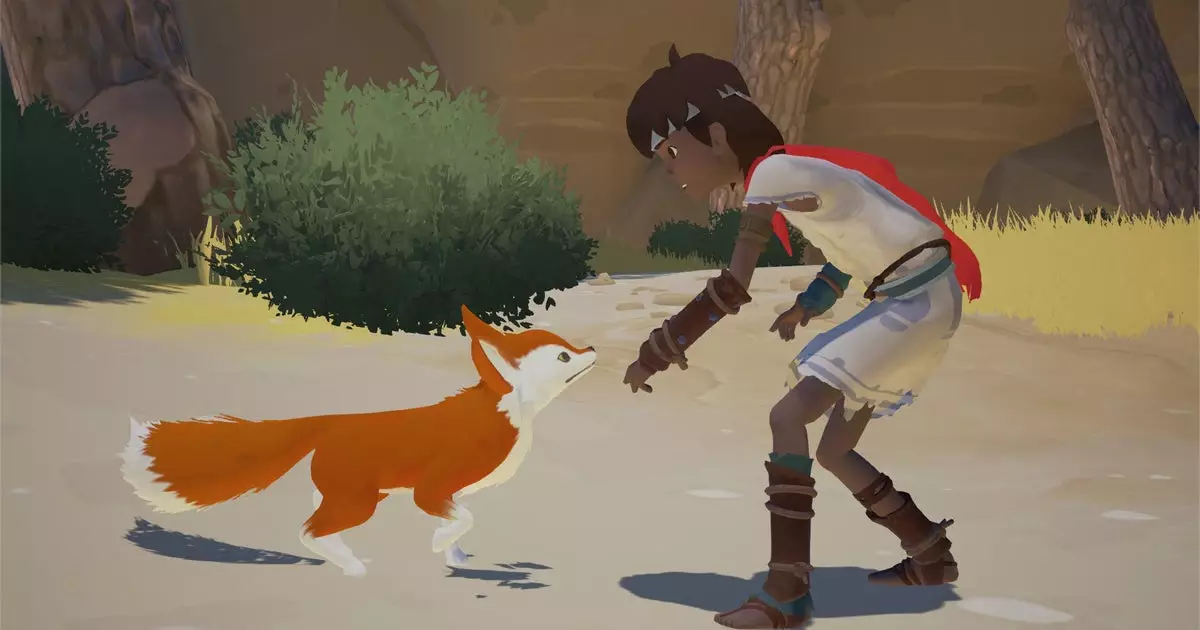The story of Tequila Works serves as a poignant reminder of the volatile nature of the gaming industry. Once lauded for their creative prowess with titles like Rime, the studio’s abrupt decline—culminating in layoffs, insolvency, and the eventual auction of its assets—paints a somber picture. For a company that seemed to embody the spirit of innovation and emotional storytelling, this downfall is nothing short of tragic. It underscores the harsh realities many studios face today, especially in an ecosystem increasingly dominated by corporate interests and financial pressures.
Tequila Works’ journey took a downturn when funding from Tencent fell through, a decision that reverberated through their operational structure. It’s not just a loss of funds; it’s a stark illustration of how fragile project pipelines can become when reliant on external investments. This is a common theme in the indie game development landscape, where the shadows of financial uncertainty loom large. The fact that founding members Raúl Rubio and Luz Sancho resigned further indicates that the turmoil was not just superficial but rooted deeply within the studio’s culture and vision.
Pieces of a Shattered Dream: The Open Auction
The auction of Tequila Works’ assets serves as a metaphor for lost potential. Among the items up for bidding lies an array of intriguing projects that could have reshaped gaming narratives. For instance, The Ancient Mariner, billed as an open-world narrative adventure centering on human emotions, stands out. Although its elevator pitch feels clunky, it clearly attempts to build on the thematic richness of Rime. This apparent thematic continuity raises questions: what could have been if the game had come to fruition? Unfortunately, we are left only to speculate as it now joins the ranks of unrealized dreams.
Next on the list is Dungeon Tour, a whimsical concept that promises to offer a cooperative experience akin to Overcooked, mixed with Dungeon Keeper’s strategy elements. Imagining iconic characters leading comically inept tourists through procedurally generated dungeons not only highlights the studio’s creative flair, but also its understanding of multiplayer dynamics. This idea could have attracted a wide audience, capitalizing on the casual gaming boom. Yet, as with many innovative concepts, its potential remains untapped, creating a significant gap in the gaming industry that players will never get to experience.
Brawler Crawler, another ambitious project set in a chaotic urban universe, is unfortunately marked as cancelled. This decision encapsulates the reality of game development, where ideas can be aborted not due to a lack of merit, but from the weight of financial burdens. Such cancellations resonate painfully with both developers and gamers who invest emotional energy into the narratives of these projects. It emphasizes the disconnect between creative vision and commercial viability—a battle that developers face on a daily basis.
The Human Cost of Bankruptcy
Amid the technicalities of auctions and project cancellations, the narrative of Tequila Works also exposes the human aspect of the crisis. The fate of its employees draws attention to the real toll of corporate mismanagement. Reports that the remaining staff might “fulfill their responsibilities” without guaranteed compensation add a layer of distress to an already tragic situation. To witness dedicated team members searching for new opportunities, posting tributes to their time at the studio on platforms like LinkedIn, evokes a sense of loss—not just for the games left unrealized, but for the community that thrived there.
Such expressions of camaraderie amidst adversity highlight the deep emotional bonds formed within the creative process. Narrative director Rob Yescombe’s reflection on how Tequila Works rekindled his faith in his career offers a glimmer of humanity in an otherwise grim narrative. The bonds formed and the creative stories told offer a reminder that the gaming industry is built upon the dedication and passion of its creators, and their journeys are as significant as the games they make.
The saga of Tequila Works is a microcosm of broader trends affecting indie developers today. It showcases the delicate balance between artistic vision and financial sustainability. In the face of relentless market pressures and shifting consumer demands, the resilience of creative talent remains the linchpin for innovation in the gaming sector.


Leave a Reply